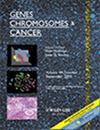Identifying genes involved in cancer is crucial for understanding the underlying molecular mechanisms of the disease and developing effective treatment strategies. Differential expression analysis (DEA) is the predominant method used to identify cancer-related genes. This approach involves comparing gene expression levels between different samples, such as cancerous and non-cancerous tissues, to identify genes that are significantly upregulated or downregulated in cancer. DEA is based on the commonly believed assumption that genes upregulated in cancerous tissues have the potential to function as oncogenes. Their expression levels often correlate with cancer advancement and unfavorable prognosis, whereas downregulated genes display the opposite correlation. However, contrary to the prevailing belief, our analysis utilizing The Cancer Genome Atlas (TCGA) databases revealed that the upregulated or downregulated genes in cancer do not always align with cancer progression or prognosis. These findings emphasize the need for alternative approaches for identifying cancer-related genes that may be more accurate and effective. To address this need, we compared the effectiveness of machine learning (ML) methods with that of traditional DEA in the identification of cancer-related genes. ML algorithms have the advantage of being able to analyze large-scale genomic data and identify complex patterns that may go unnoticed by traditional methods. Our results demonstrated that ML methods significantly outperformed DEA in the screening of cancer-related genes.


